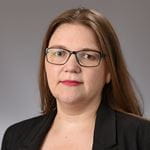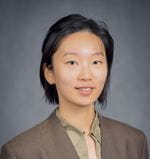Our annual Indiana CTSI Pharmacometrics Modeling and Simulation Symposium features international experts in pharmacometrics and quantitative sciences from academia, industry and regulatory agencies who share ongoing research in these fields. Historically held in person in Indianapolis, and following the success of our 2021 virtual symposium, we now offer a hybrid format that extends our reach to international attendees. Training tutorials and career development sessions foster education and professional growth for students and fellows.
 We are excited to announce that the Indiana CTSI Pharmacometrics Modeling and Simulation Symposium will be held in conjunction with the
We are excited to announce that the Indiana CTSI Pharmacometrics Modeling and Simulation Symposium will be held in conjunction with the  Souvik Bhattacharya, PhD
Souvik Bhattacharya, PhD Supriya Bidanta, MS
Supriya Bidanta, MS Robert R. Bies, PharmD, PhD
Robert R. Bies, PharmD, PhD Ahmed Elmokadem, PhD
Ahmed Elmokadem, PhD Debora Gisch, PhD
Debora Gisch, PhD Derrick Johnson, Ph.D.
Derrick Johnson, Ph.D. Jennifer Lang, PhD
Jennifer Lang, PhD Xinnong Li, MS, BS
Xinnong Li, MS, BS James Lu, PhD
James Lu, PhD Paul Macklin, PhD
Paul Macklin, PhD Tarunendu Mapder, PhD
Tarunendu Mapder, PhD Nieves Velez de Mendizabal, PhD
Nieves Velez de Mendizabal, PhD  Mark Sale, MD
Mark Sale, MD Stacey Tannenbaum, PhD, FISoP
Stacey Tannenbaum, PhD, FISoP Katherine M.C. Totten, PhD
Katherine M.C. Totten, PhD Tim Waterhouse, PhD
Tim Waterhouse, PhD Yoon Yeo, PhD
Yoon Yeo, PhD Youngjae You, PhD
Youngjae You, PhD Yifan Yu, MS, BS
Yifan Yu, MS, BS Haiying Zhou, PhD
Haiying Zhou, PhD